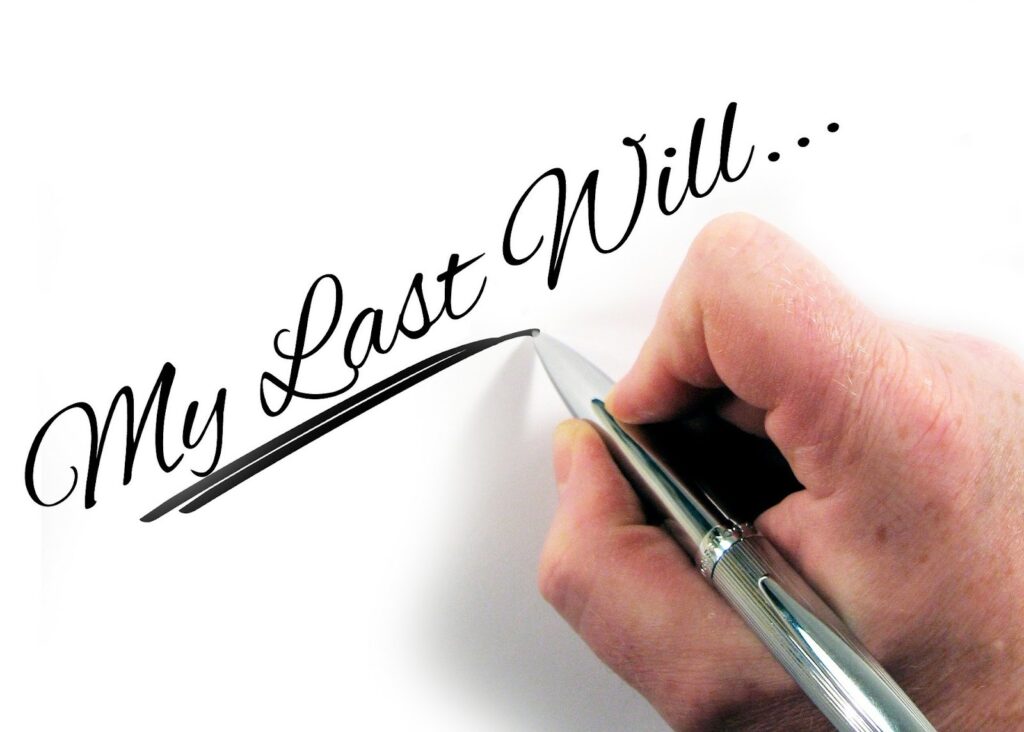
Many people don’t want to think about what will happen if they pass away, which means they’ll put off putting together an estate plan for as long as possible. While thinking about death is difficult, especially if you have a family, it’s necessary so you can ensure the wellbeing of the ones you love and make sure your assets are distributed the way you want.
An estate plan can save your family time and money while reducing their stress during a period of mourning. Not having an estate plan will make things harder for the ones you love, and you won’t have any control over your assets, such as cars, houses and everything else you own. Instead of you having control, the courts and laws will decide where your assets go. Here’s what you can expect when you don’t have an estate plan.
Probate Court
The probate process happens after your death to settle your estate. During the process, the courts decide how your assets are distributed after your debts are settled. Your heirs will make claims against your estate, and the process can take months to years to complete.
Family Disputes
If you don’t have a clear outline about which of your heirs gets which assets, you can expect them to fight about it. While nobody thinks their adult children will squabble during the mourning period, you have to remember many people react differently to grief. This will be a period of intense emotions, and tensions will be high. Instead of letting your children fight over your assets, your estate plan will outline who will get your assets so there can’t be any claims against one another.
Intestate Succession
Intestate succession allows courts to identify your heirs. For example, if you’re not married but have a child, that child will inherit your estate. If you have a spouse and children, then your spouse will be your heir. These succession situations can get difficult if you have children from multiple marriages, a spouse, living parents, or no children at all. Every succession is different, so it can take the court months to determine who your heir will be.
Unintended Heirs
Without an estate plan, the courts will be forced to use intestate succession, which means your preferences won’t be honored. The lack of a clear will can lead to unintended heirs. For example, if you have no spouse and two children, and you want the youngest one to inherit your estate, you’ll need some type of estate plan to tell the court. Without the estate plan, your estate would likely go to your first-born child.
Similarly, if you have a sibling you don’t talk to anymore and a sibling you’re close with, the wrong sibling could inherit your estate. Again, not having an estate plan puts your plans for your assets at risk.
Squandered Assets
While you can and should have a will, an estate plan can do so much more. For example, trusts allow you to control the distribution of your financial assets to cover different circumstances. Without an estate plan, those assets could get misused and negatively impact the lives of your heirs. For example, you might have a grandchild who you want to receive $1 million when you pass away, but that grandchild is only 18 and still in college.
It’s not always the best idea to give a young person that much money. Instead, you can have that money given to them as a lump sum when they are older or distributed to them over time so they can reach their goals using your assets instead of squandering them.
Unintended Guardians

If you have children, you should learn how to write a will so you can name a guardian for your children if you and your spouse pass away. Without an estate plan, you can’t guarantee the court will make the guardian of your children the person or people you want to have the responsibility.
For example, if you don’t name a guardian for your child in an estate plan, the courts might choose a family member who you may not want to raise your children. You also run the risk of your children ending up in foster care if nobody is willing to step forward and take care of them.
As soon as you have your first child, make sure you draft a will so you can name a guardian. Choose someone you trust and believe will be in your life for a long time. You can choose a family member or even a friend; just make sure you discuss it with the person you choose so they know the responsibility of raising a child when you pass away.
In addition to children, you can also name a guardian for your pet in your will. If you want to make sure your dog or cat is taken care of after you pass away, make sure you have an estate plan and name someone willing to care for them.
You can also set up a trust for your children and pets so you can help their guardians pay for their care once you’re gone.
Can’t Guarantee Assets Will Go to Charity
If you love helping out your community and want to donate some of your assets to charity when you pass away, you’ll need to put that in your estate plan. Without an estate plan, you have zero control over where your assets go, which means you likely won’t be donating anything to charity. In your estate plan, make sure you name a charity and the amount you want to give them so your wishes are followed.
You Need an Estate Plan
Whether you’re a young single or a middle-aged parent, you need an estate plan to help your loved ones avoid potential problems in the future. The examples provided in this article don’t cover all of the possibilities of what can happen to your loved ones, assets, and pets if you pass away without a plan.
Marné Amoguis
Marné Amoguis holds a B.A. in International Business from UC San Diego. She is a contributing writer at 365businesstips.com where she loves sharing her passion for digital marketing. Outside of writing, she loves traveling, playing music, and hiking.


